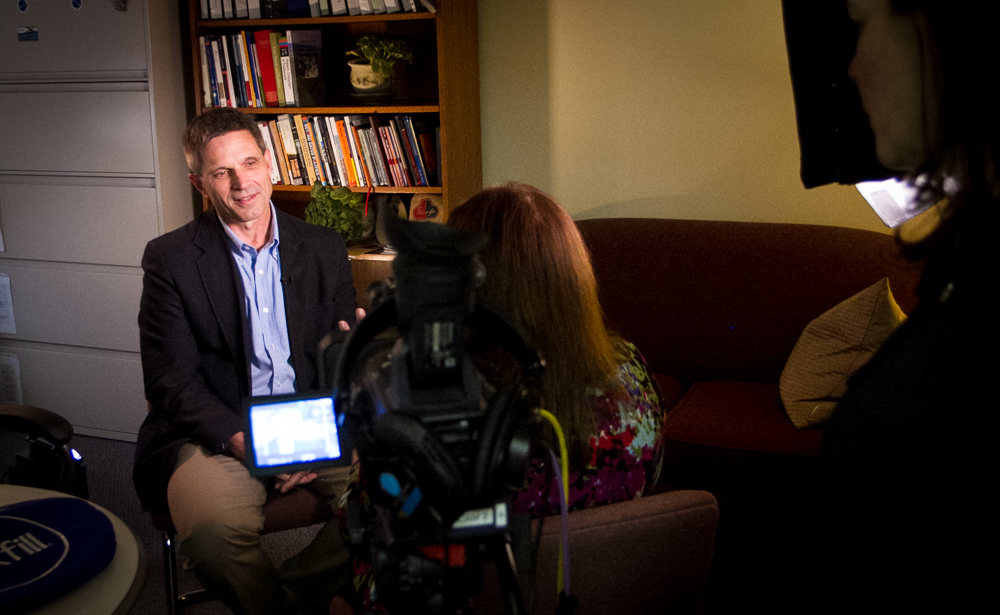PBS correspondent Kim Lawton turned to J. Daryl Byler, executive director of the Center for Justice and Peacebuilding, when she needed someone to provide context for a televised report on Christians living in Jordan.
In an on-camera interview in Byler’s office at Eastern Mennonite University on Feb. 4, Byler spoke about the positive influence of work by Jordanian Christians, despite their dwindling numbers.
Byler, who lived in Jordan for six years until July 2013, said Christian have had “a very major influence in the fields of education, in the medical field, operating some of the best hospitals in the country… Their institutions are there to serve other Christians but also Muslims and others in the country, so they make their services available, and they see that as their way of giving witness to the light of Christ.”
Byler was one of six people Lawton interviewed for “Jordan, the Other Holy Land,” a segment of Religion & Ethics Newsweekly, for which Lawton is the award-winning managing editor. The segment was posted online Feb. 14, to be broadcasted thereafter by local PBS stations across the country. Byler, who formerly represented the relief agency Mennonite Central Committee in Jordan, was the only interview subject who was not a native of the Middle East.
Lawton made the observation that Christians in Jordan have much freedom of religion, compared to many other largely Muslim countries, and that Jordanian Christians and Muslims “have generally lived together in peace.”
Byler mainly agreed, with two caveats. Jordanian Christians are not allowed to try to convert a Muslim to Christianity, though the reverse is okay. But, yes, “they are free to meet, to worship, to provide services, run schools and hospitals.” And, secondly, Christians in Jordan “bear that burden” of being viewed as linked to the West and its churches, which tend to be perceived as anti-Muslim and supportive of wars that harm Muslims.
Lawton’s report concluded with these words from Nabil D. Haddad, a priest in the ancient Melkite Catholic Church and founding director of the Interfaith Coexistence Research Center in Jordan:
“This region has always had the three religions. This is the birthplace of Islam, Christianity and Judaism. So it is part of the history, it’s part of the presence, and it’s the responsibility of the Christians and the Muslims to work together, to protect this history and the value in it.”
